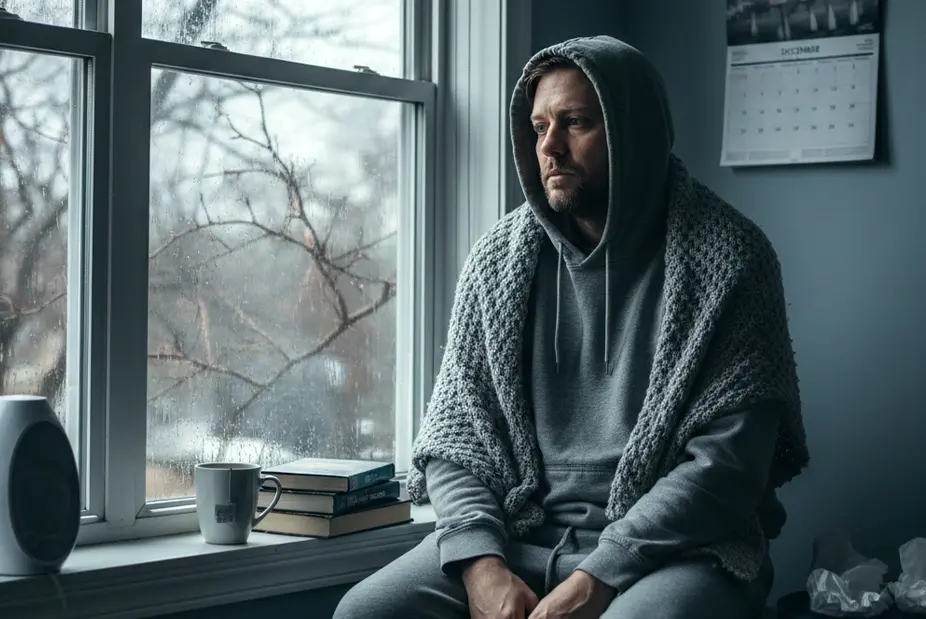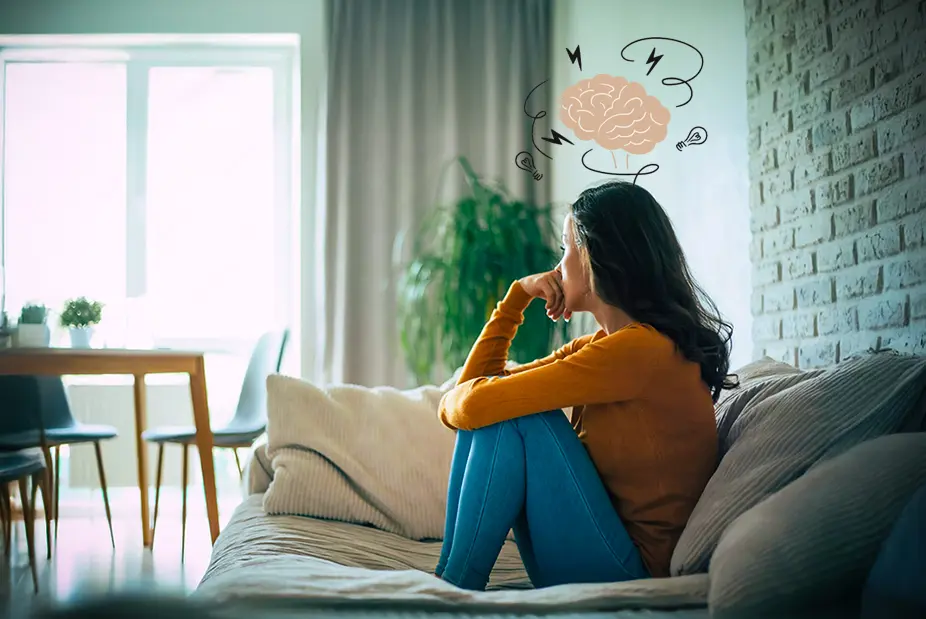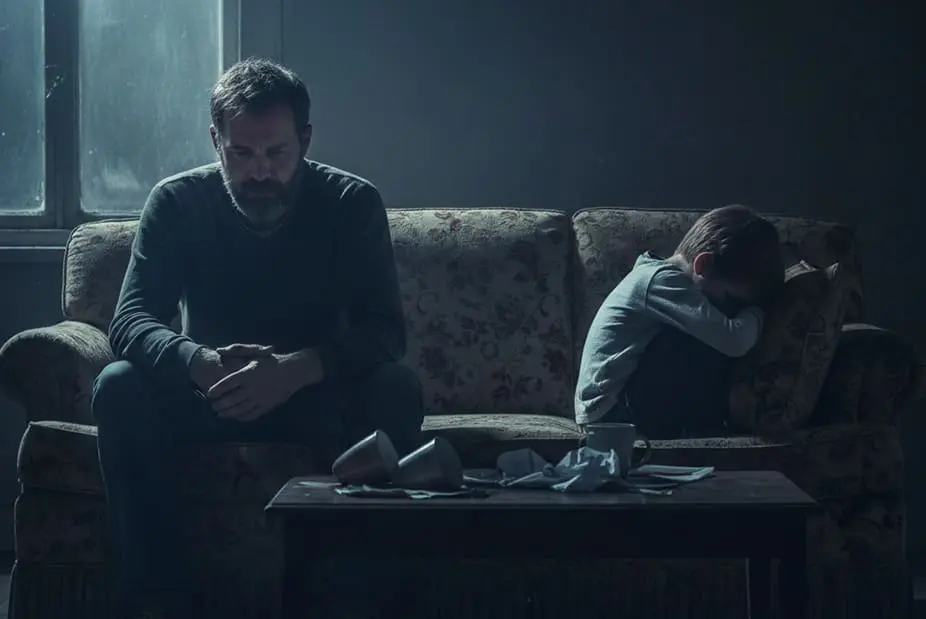Feeling sad or anxious sometimes is common, but when that feeling grows into something more, it becomes a condition. These conditions are none other than depression and anxiety.
Such a feeling disrupts your normal life and can affect your routine activities. Living with continuous anxiety or persistent sadness can drift you away from your social circles. Also, it can affect your studies, work, and other activities that require concentration.
As it interferes with your daily life, the question can come to your mind: Is depression and anxiety a disability?
Well, that depends on the severity of the case. When you feel a little low or experience anxiety but are still able to perform your everyday duties and responsibilities, the condition does not qualify as a disability.
However, when depression and anxiety are crushing you down to a level where you are getting negative thoughts, it can disable you from acting normally.
Living with such a condition can be difficult, and that’s why you should get the necessary help when you start showing symptoms of depression and anxiety.
An in-person therapy session is always a step away from your healing journey. In that session, a licensed professional would discuss your thoughts, feelings, and emotions that you find difficult to share with others.
They will use various therapeutic approaches to understand your condition better and offer effective solutions.
This blog will explore the understanding of anxiety and depression as a disability. Also, it will inform you about the symptoms of these conditions and how they can help you claim benefits.
What is Depression?
Depression is beyond a sad feeling that lasts for a few days. It impacts how a person thinks, feels, and believes. The feeling of persistent sadness becomes a condition. And that condition is depression.
Various stages of depression impact people differently. For some, the condition may bring small changes in their sleep patterns or in how they interact with others. In other cases, the condition may severely affect a person’s life and work.
The effects that depression brings on people often disrupt a person’s mental peace, daily life, work, and even relationships. With all the effects, does depression count as disability?
Well, it can be a disability when even after thorough treatment, the persistent sadness is still impacting different phases of your life. But with the right therapist and recovery plan, you can control the condition.
What is Anxiety?
Family issues, work stress, traumatic experiences, and many other life struggles can trigger anxiety in a person. Sometimes we all feel anxious. But when it takes a serious turn, therapy considers anxiety as a disability.
And by that, we mean psychiatric disability. Anxiety usually combines a feeling of restlessness and fear. And when these feelings become severe, they manifest as a disorder.
Anxiety that takes the shape of a disorder becomes very difficult to control. And it starts to come between your personal relationships, school, and work.
Living with the constant fear or paranoia can be tormenting. Hence, it is necessary to seek help when it’s time and analyze your situation. That way, you can manage these feelings better.
Is Depression and Anxiety a Disability?
When you seek therapy for mental health conditions, a general question arises in their minds: Is depression and anxiety disability?
It depends on how these two conditions impact daily lives and work. For some, depression and anxiety may have a mild impact, like low mood or nervousness before a work presentation.
These situations will not stop you from maintaining a social and professional life. And when you seek therapy, you can better cope with these situations.
However, there are cases where depression and anxiety can take a serious turn, disrupting the “normal” way of life, leading to disability. Let’s understand how depression and anxiety are considered disability.
Disability for Depression
To understand the mental impairment that depression brings, it is necessary to know its symptoms. The symptoms of depression include:
- Low mood
- Poor concentration
- Loss of interest
- Feeling of hopelessness
When these symptoms persistently and severely start impacting the daily functioning of your life, it takes the shape of disability.
Disability for Anxiety
Anxiety combines negative feelings and physical symptoms in response to certain events and situations. These symptoms can include:
- Feeling restless
- Irritability
- Constant paranoia
- Sleep disturbances
When these symptoms affect your daily life, work, and social circles, it becomes difficult to function normally. Moreover, it is known as generalized anxiety disorder. The excessive anxiety symptoms thus make generalized anxiety disorder a disability.
Diagnosis for disability for depression and anxiety
Depression and anxiety can impact your lives in ways you’ve never imagined before.
The persistent feeling of sadness can leave you feeling less interested in things you once enjoyed. Also, it can isolate you from the people you love and care about. Also, such feeling interferes with your work.
Even when it comes to anxiety, the constant fear can make you lose focus on the activities. And you feel drained all the time. And that draining emotion can create relationship issues and problems with your co-workers.
Often, people don’t understand these symptoms better, which leads to long-term disability, depression, and anxiety. To ensure you manage the symptoms of depression and anxiety better, you can engage in therapy and its approaches.
Before therapy, it is essential to get a proper diagnosis for your condition. The right diagnosis for depression and anxiety will help the therapist create a treatment plan for recovery.
- A licensed mental health professional will run an evaluation of your thoughts, emotions, and behavior to understand how such emotions impact your life, relationships, and work.
- Professionals can use screening tools such as the PHQ-9 (Patient Health Questionnaire-9) and GAD-7 (Generalized Anxiety Disorder-7) to assess symptom severity. Also, with these tools, the therapist can monitor changes in their condition over time.
- Often other physiological and neurological condition can also mimics the symptoms of depression and anxiety. For instance, vitamin D deficiency can cause persistent fatigue. And that is a common symptom of depression and anxiety. Therapists thus rule out the other condition to focus on the mental health issues.
- The professionals conduct a comprehensive analysis of the patient’s stressors, family history, traumatic experiences, and personal background. They evaluate these factors to carefully identify the condition’s root causes, resulting in an effective treatment plan.
Therapies for Depression and Anxiety
Depression and anxiety take a significant toll on your emotional and physical health. But the good news is, the conditions are treatable at different stages. All you have to do is seek help from professionals, and they will guide you through the process.
There are different kinds of therapies to treat depression and anxiety. To break free from low mood and irritability, you should know what they are.
1. Eye Movement Desensitization and Reprocessing (EMDR)
The EMDR therapy is associated with unresolved trauma. Using this technique, professionals would target the traumatic experiences and reprocess them to reduce the emotional charge of the memory.
Such a technique can help you address the triggers of anxiety and depression, thus allowing you to recover from their adverse effects.
2. Acceptance and Commitment Therapy (ACT)
Acceptance and Commitment Therapy helps individuals accept conflicting thoughts and emotions rather than fight them. As they accept their conditions, it helps to analyze their depression or anxiety symptoms better.
By understanding your own thoughts better through the cognitive diffusion method and practicing mindfulness, you can deal with anxiety and depression better. The therapist will create a safe space where you can reinforce your values to bring about positive change in your behavior and thinking.
3. Behavior Therapy or Cognitive Behavioral Therapy (CBT)
Depression and anxiety can affect your behavior. The constant irritability can lead you to act out, and with depression, you may isolate yourself from everyone. To manage such behaviors, a therapist can offer behavior therapy.
In such therapy, the professional will identify the behavior patterns and use positive reinforcement to change them. Through CBT, the therapist will guide you in identifying your negative thoughts and turning them into positive behaviors. It also includes dialectical behavior therapy (DBT) to manage stressors leading to depression and anxiety.
These therapies are extremely effective in managing stress and anxiety. However, many fail to continue the process due to its expense. And for that reason, people claim social security benefits.
The Social Security Administration provides financial aid to people who suffer from mental health conditions like depression and anxiety. But there’s a catch: be it depression or anxiety, it should qualify as disability.
To link depression and social security, you need to ensure that your condition interferes with the daily functioning of your life, especially work. When you can prove that anxiety and depression are disrupting your work life for more than a year, you can claim mental health disability benefits.
Break Free from Depression and Anxiety with Atlanta Behavioral & Mental Health Counseling
Does the question of whether depression and anxiety are disability still cross your mind? Then you should know that the impact these conditions have on your life will determine the extent of your disability.
When depression and anxiety take a severe turn, it can stay with you like a shadow, and that hinders your daily life, work, and relationships. Though proving the severity of your condition can help you get Social Security benefits, it can worsen your situation.
Thus, to manage your symptoms better and to have control over the negative feelings, you can consider therapy.
At Atlanta Behavioral & Mental Health Counseling, we provide therapy to individuals of all age groups. We aim to guide troubled souls in the right direction, no matter how small or severe their mental issues are.
Our experts conduct a diagnostic evaluation to assess the severity of your condition and provide services ranging from EMDR to ACT. You can embrace a quality of life with all these services.
Explore our wide range of therapy and counseling to enhance your overall health.
FAQs
1. Is chronic depression disability?
Chronic depression can be a disability according to the Americans with Disabilities Act (ADA) and the Social Security Administration (SSA). Since feelings of hopelessness or low mood are constant, they affect your daily functioning. As a result, it qualifies as a disability.
2. How do I claim clinical depression disability?
To claim clinical depression disability, you need to prove the legitimacy of your condition through a formal diagnosis. When a licensed therapist validates that you have clinical depression and you’re under treatment, you can apply to SSA to get the benefits.
3. Can I get disability for depression?
Yes, you can get Social Security benefits for depression. However, you have to prove that the condition is hampering your way of life. For that, you need to undergo a thorough diagnosis from a licensed doctor. When the diagnosis states that your condition is severe and you can perform your daily activities even after considering therapy, you can seek disability benefits.
4. How do I qualify for depression disability benefits?
To qualify for depression disability benefits, you need to prove that the condition is severe enough and prevents you from working or performing the daily activities of your life. You need to provide your mental health history records and a formal diagnosis. Depending on such documents and your ongoing treatment, the SSA will determine whether you qualify for disability benefits or not.




